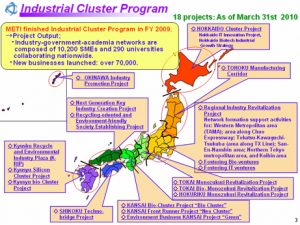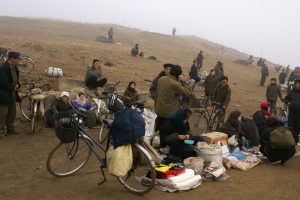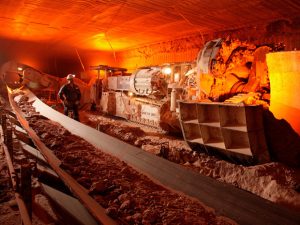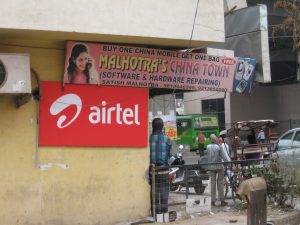State Formation and Contemporary Mongolia (Video with Dr. Robert Bedeski)
States are a paradox. On the one hand, with a monopoly on the use of force, they provide security, but on the other the formation of the state is often accompanied by violence.
The example of Mongolia is an interesting demonstration of this. Genghis Khan’s unforgiving destruction of enemies shows state formation to be brutal, but this was accompanies by the development of the rule of law and a written language, through which the nation developed.
Transforming Local Industrial Districts in Japan into Innovative Clusters
A characteristic of the Japanese “flexible production system” is vast networks of subcontractors. Recently, the overseas sourcing of parent companies’ manufacturing has led to reorganization of small business in Japan. Efforts to revitalize regional economies in response have focused on the creation of industrial clusters.
Bureaucratic Red Tape Chokes Free Markets in India
India auctioned 3G licenses for USD $14.78 billion in 2010, a bonanza for a government staring at a large fiscal deficit and trying to promote inclusive growth through a host of populist social schemes. With new telecom auctions scheduled soon, the government hopes to generate more money to pare its fiscal deficit, and bolster its reformist credentials to foreign and domestic investors.
Post-socialism, North Korean Style: With State Economy in Ruins, Workers Look Elsewhere for Employment
North Korea is often described as the “world’s last Stalinist state,” but this is misleading. While the facade of a Stalinist economy remains visible in Pyongyang, the nation’s capital, the socialist regime has long become an empty shell. The North Korean economy is now dominated by legal, semi-legal, and entirely illegal private enterprises that provide employment for workers who have failed to make ends meet in the formal economy. As such, it more closely resembles a post-socialist Eastern European economy than a Stalinist one.
China’s Liberalizing Impact on Global Commodity Markets
Memo #195 – China played a key part in the recent collapse of the iron ore pricing regime. This was an unintended consequence of a mix of bold negotiating tactics and competing domestic interests, which made it difficult to implement a consistent international procurement policy. Chinese actions destabilized global market institutions and paradoxically caused their liberalization.
Judo in Japanese Schools – Concerns about Safety
Memo #191 – Japan’s prime minister, Shinzo Abe oversaw the revision of the 1947 Fundamental Law of Education to emphasise traditional “Japanese values” in 2006. As one direct result of this, traditional martial arts became compulsory in junior high schools in April 2012. Unlike the initial opposition to the new law, opposition to this particular aspect has not been led by teachers’ unions and their political allies, but by parents concerned about the health and safety of their children.
Why Technology Needs People: Gold, Phones, and Bicycles
Memo # 177 – “We treated our precinct captains like gold,” wrote David Plouffe, an architect of President Obama’s 2008 US election campaign. “The challenge” lay in “marrying digital technology and strategy with a strong grassroots campaign.”
Plouffe’s insights had been anticipated a year earlier in an election in Uttar Pradesh, India’s largest state, where a party led by a Dalit (former untouchable) woman won unexpectedly. And the story about the centrality of technology and people came full circle early in 2012 when Uttar Pradesh voted to throw out the incumbent government.
China Crucial to India’s Mobile Revolution
Memo #172 – India entered the elite global club of $1 trillion-plus (USD) economies in the last decade accompanied by explosive growth in domestic mobile phone users. India had the second largest population of mobile phone users as of 2010, an astounding leap from their modest rank of 34th ten years earlier.
Mongolian Election: Bumpy Road, but Heading in the Right Direction
Memo #161 – Elections are milestones in democratic development. With the closing of nominations on June 6, 2012, the campaign for the Mongolian parliamentary election officially opens. Observers seem pessimistic about Asia’s only post-socialist democracy. But the upcoming election promises to be more carefully organized and transparent, and public discussions of corruption will strengthen democracy.
China – Global Shipping, Coal Usage, High Speed Train Corridors (Video Interview with Dr. Claude Comtois)
Memo #155 – China is a driving force in global shipping, coal usage, and high speed train corridors. Based on a series of lectures at The University of British Columbia in February 2012, Dr. Claude Comtois argues, that in combination these three developments have enormous implications for China and the world.









